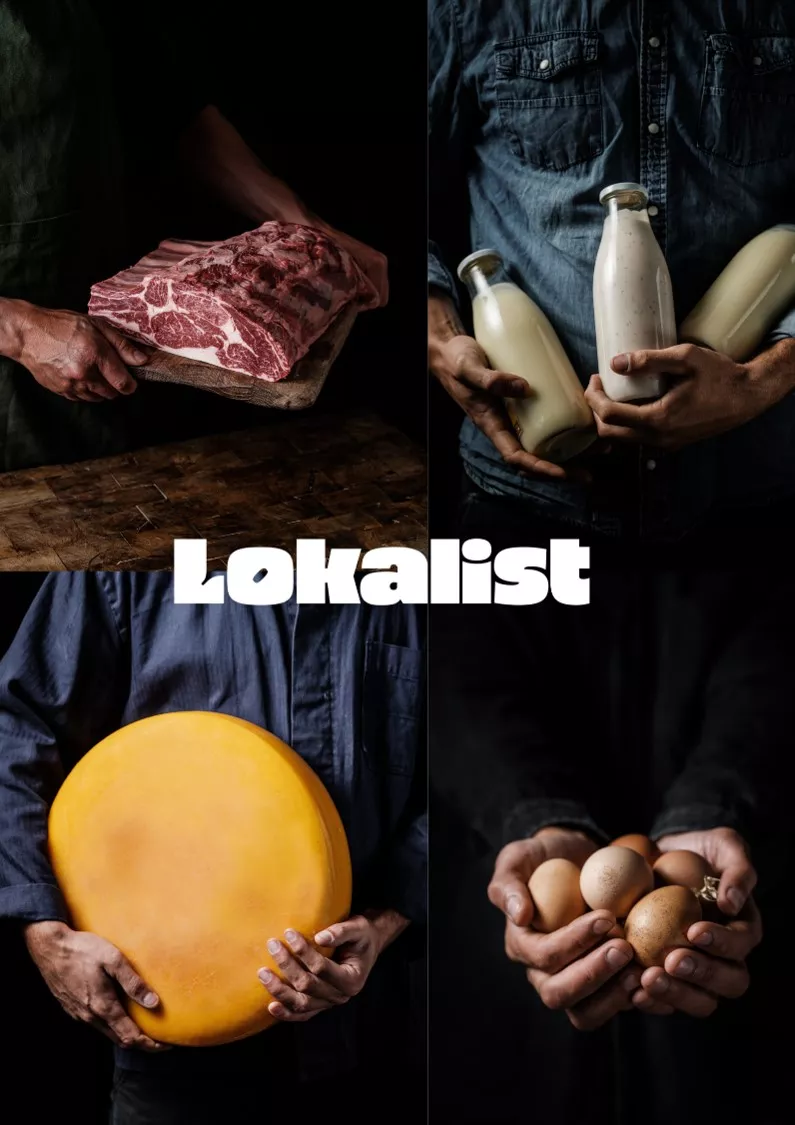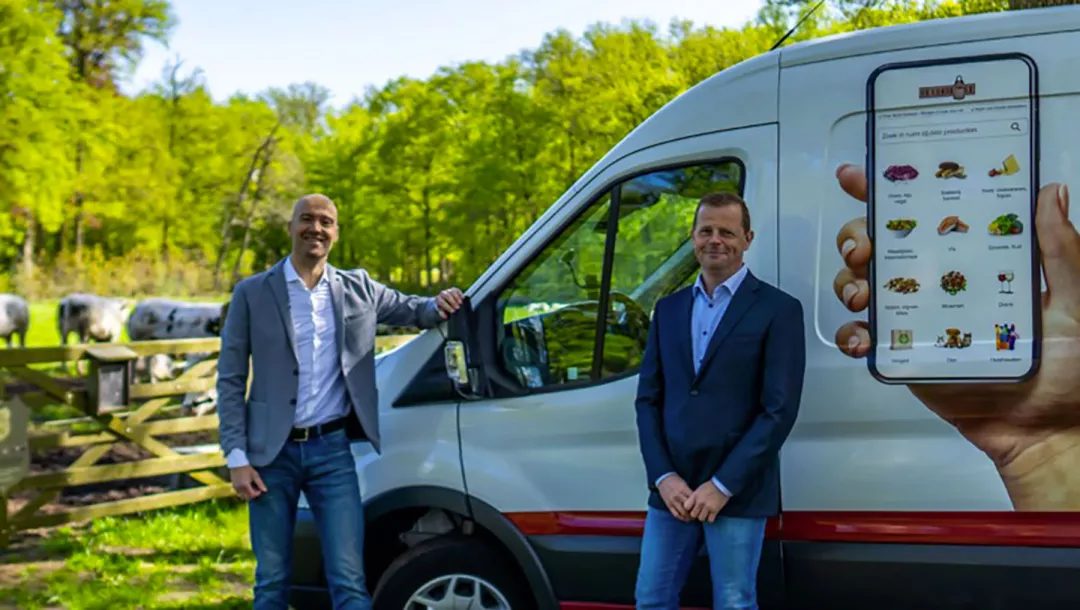General information
RDP Priority
- P2. Competitiveness
RDP Focus Area
- 2A: Farm’s performance, restructuring & modernisation
RDP Measure
- M16: Cooperation
Beneficiary type
- Operational group
Summary
A project all about helping farmers in the Utrecht province (and eventually all over the Netherlands) to create a more efficient, sustainable and professional way to sell their products directly to businesses and consumers and make them more resilient compared with delivering to one client.
Farmers face many hurdles with logistics, IT, regulations and finding partners and customers, which makes it costly and inefficient for them to use short supply chains. The project is therefore setting up a central marketplace where farmers can list their products and buyers can easily purchase them. This involves organising lectures, provincial meetings and one-on-one demonstrations to promote this efficient short supply chain. Boer2B ensures that within 24 hours of ordering, products are collected from various farmers, combined into a single order and delivered.
What the project achieved is creating a platform that helps farmers sell their products more easily to more customers without worrying about delivery, sales or IT. They become more independent, cut costs, save time and charge more competitive prices. Restaurants and retailers can place orders with multiple farmers seamlessly, resulting in a more efficient system which supports local farmers and provides everyone with fresh, local and sustainable products, all in a user-friendly app.
Results
Climate and environmental action:
- Reduced carbon footprint, using fewer vehicles with higher load factor by combining orders of several farmers.
- Enhanced sustainability: promoting fresh, local products reduces the need for long-distance transport, further lowering environmental impact.
- First 200 business buyers/resellers now order regularly.
Economic benefits:
- Increased farmer earnings: farmers receive better prices for products by reducing costs related to logistics, IT and sales.
- Efficiency gains: simplified logistics and streamlined ordering process save time and resources for both farmers and businesses.
Societal benefits:
- Strengthening local economy by supporting local farmers and businesses, helping farmers become more independent, with better prices creating more resilient earning capacity, making it easier to improve animal welfare and create a more sustainable business operation.
- Consumers enjoy easier access to fresh, sustainable and local products, enhancing quality of life.

Funding
Total budget: 490 274 (EUR)
EAFRD: 150 000 (EUR)
National/Regional: 150 000 (EUR)
Private/Own funds: 190 274 (EUR)
Context

Farmers across the Netherlands face significant challenges selling and distributing their products locally. The hurdles they have to overcome include logistics, IT, regulations and finding partners and customers, which makes it costly and inefficient for them to use short supply chains.
One very innovative farmer recently ran a successful crowdfunding campaign to work on the protein transition, creating 'hybrid burgers' with lupine wheat with two entrepreneurs from a former postal company. The combination of knowledge, networks and expertise of these different stakeholders led to the creation of a platform featuring all the very specific needs (i.e. the pain and gains to use business model innovation language) for all the necessary stakeholder groups in the innovation system.
The platform is designed to strengthen the farmers’ position in the value chain, increase their independence by widening the customer groups and make them more competitive with regard to the current regime they are primarily dealing with – namely wholesalers.
As of 1 July 2024, Lokalist is financed by three of the largest farm advisors and suppliers in the Netherlands. In the last quarter of 2024, Lokalist will start scaling up by rolling out its unique growth strategy.
Objectives
In response to the challenges faced by local farmers, the project aimed to create an efficient marketplace, establishing a platform for farmers to list products and buyers to purchase easily. This would enhance earnings, reducing costs related to logistics, IT and regulations, and help farmers get better prices by becoming more independent and efficient. This would also support local agriculture, strengthening the farmer-consumer connection by making their products easily available for resellers.
Simplifying logistics was another big priority with the target being to collect and deliver orders within 24 hours and also use electric vehicles in urban areas. Developing a user-friendly app for seamless ordering by businesses would help in this respect. Overall, an increase in efficiency was being targeted, with the project promoter organising lectures, meetings and demonstrations to promote the short supply chain.
Activities
A number of activities were undertaken to ensure the project’s success. We began by organising lectures to inform farmers and potential buyers about the benefits and functionalities of a central marketplace. During these, we shared best practices and success stories to encourage participation. We then arranged meetings with local authorities and stakeholders to discuss the project's goals and gather support, and address regulatory and logistical challenges to ensure smooth implementation.

The next step was to develop the central marketplace platform. One of the first priorities was to build a user-friendly app where farmers could list their products and all types of buyers could easily purchase them. Features for volume and price differentiation were integrated to help farmers optimise their sales.
After that, personalised demonstrations were conducted for farmers and buyers to show them how to use the platform effectively. Discussions were held to address any concerns and gather feedback for further improvements.
Establishing efficient logistics was another must if the project was to be a success. A system was implemented to collect and deliver products from various farmers within 24 hours of ordering and combine orders into single deliveries to enhance efficiency, with the ambition of using electric vehicles in urban areas.
Once these elements were in place, it was necessary to promote the platform through social media and community events to reach a wider audience. The project staff engaged with local businesses, restaurants and retailers to encourage their participation and support.
There was also an ongoing requirement to monitor the platform’s performance and logistics to ensure efficiency and sustainability. Feedback was gathered from users to make continuous improvements and address any emerging issues.
By following these steps, the project successfully established a more efficient, sustainable and professional short supply chain for local farmers and consumers. Local farmers were of course involved throughout, while local authorities were brought on board to support the regulatory and logistical aspects, and restaurants and retailers acted as primary buyers, thus enhancing market reach.
Main results
The project achieved significant quantitative benefits across various dimensions. In terms of climate and environmental action, a reduced carbon footprint was achieved by using fewer vehicles with a higher load factor and by combining orders from several farmers. Promoting fresh, local products also reduced the need for long-distance transport, lowering environmental impact.
The economic benefits were significant. Farmers received better prices for their products by reducing costs related to logistics, IT and sales. Simplified logistics and a streamlined ordering process also saved time and resources for both farmers and businesses.
Societally, supporting local farmers and businesses helped the project bolster the regional economy, enabling farmers to become more independent. Better prices created a more resilient earning capacity, which in turn made it easier to improve animal welfare and create a more sustainable business operation. Consumers also enjoyed easier access to fresh, sustainable and local products, enhancing their quality of life.
Overall, the project successfully created a more efficient, sustainable and professional short supply chain, fulfilling its goals of economic, environmental and societal improvement.
All three target groups benefited from the project’s work. Farmers experienced a boost in morale and motivation due to better economic prospects and reduced logistical challenges, thus enhancing their economic viability. Businesses enjoyed improved operational efficiency and ease of use, thus creating a professional short supply chain. Finally, consumers benefited from a stronger connection to local agriculture and improved access to quality products, thus fostering a sustainable and community-focused marketplace.
Key lessons
One of the main successes was effective stakeholder engagement, which engaged diverse parties, from farmers to businesses and local authorities, fostering a sense of collaboration among all of them.
Innovative solutions – introducing a centralised marketplace and efficient logistics using technology and sustainable practices – were also key factors.
The impact on local communities is something which the project can be very proud of. It succeeded in enhancing economic opportunities for farmers, supporting local businesses and promoting sustainability in agriculture. It is also slowly but surely helping farmers, including those from the younger generation, by spreading their turnover more easily across more customers and enabling them to become more independent from their main one or two clients through IT, sales and data-driven logistics.
Paul van Straaten

